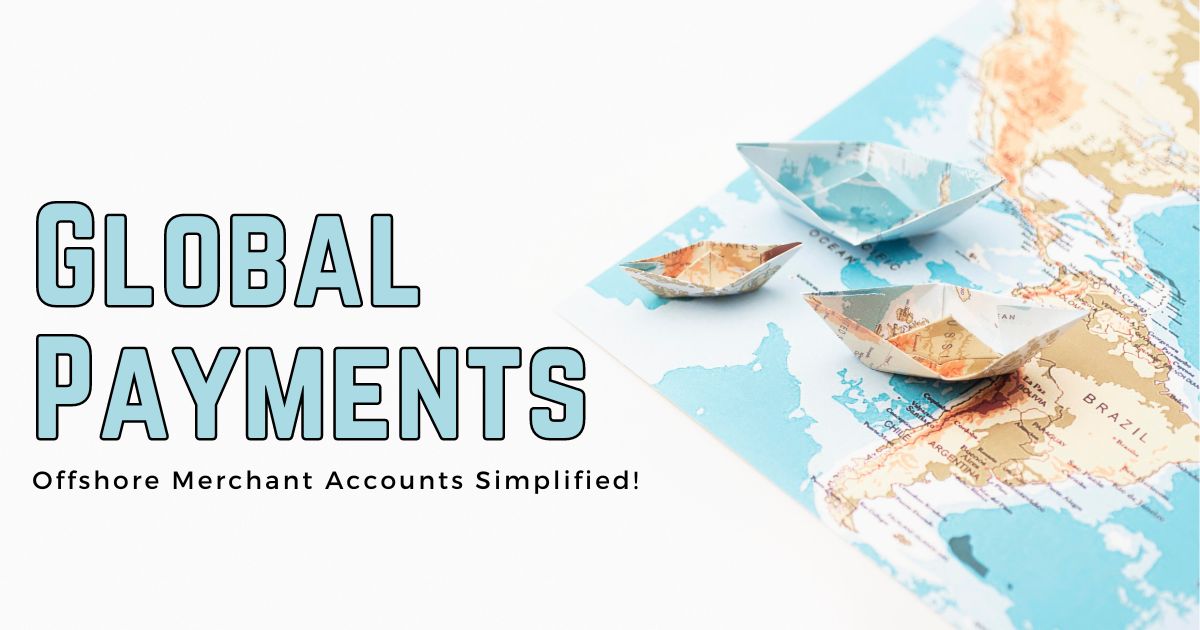
| December 27th, 2023 |
Global Payments — Offshore Merchant Accounts Simplified!
In today’s interconnected world, businesses are expanding beyond borders, reaching customers worldwide. Amidst this global outreach, facilitating international transactions seamlessly is paramount. One crucial tool enabling such fluidity in payments is offshore merchant accounts.
Understanding Offshore Merchant Accounts —
An offshore merchant account is a financial arrangement that allows businesses to accept payments in multiple currencies from customers across the globe. Contrary to domestic merchant accounts, which are confined within a specific country, offshore accounts transcend geographical limitations, fostering a more expansive market reach.
The Dynamics of International Transactions —
Navigating international transactions involves complexities beyond standard domestic dealings. Currency conversion, varied regulations, and diverse payment methods pose challenges. Offshore merchant accounts serve as a bridge, streamlining these processes by accepting payments in different currencies and adhering to diverse regulatory frameworks.
Simplified Operations through Offshore Merchant Accounts —
1. Global Payment Acceptance:
Offshore accounts enable businesses to accept payments in various currencies, accommodating diverse customer bases. This flexibility eliminates the hassle of currency conversion for customers, enhancing convenience and promoting sales.
2. Mitigating Currency Risks:
Fluctuating exchange rates can significantly impact international transactions. Offshore merchant accounts often offer currency hedging options, mitigating risks associated with currency fluctuations and stabilizing revenue streams.
3. Regulatory Compliance:
Operating across borders entails compliance with varying regulations. Offshore merchant account providers are adept at navigating these complexities, ensuring businesses adhere to local and international regulatory standards.
4. Expanded Market Reach:
Accessing offshore markets opens doors to a broader customer base. By offering multiple payment options and accommodating various currencies, businesses can effectively tap into new markets, fostering growth opportunities.
Strategies for Efficient Utilization —
1. Partnering with Reputable Providers:
Choosing the right offshore merchant account provider is critical. Look for established entities with a track record of reliability, robust security measures, and responsive customer support.
2. Understanding Fee Structures:
Different providers have varied fee structures. Assessing transaction fees, setup costs, currency conversion charges, and ongoing maintenance fees is crucial to avoid unexpected financial implications.
3. Embracing Technology:
Leverage technological advancements such as secure payment gateways and fraud detection tools offered by offshore merchant account providers to ensure secure transactions and protect against potential threats.
4. Compliance and Due Diligence:
Stay updated with evolving regulations and compliance standards in the regions where your business operates. Conduct thorough due diligence to ensure adherence to legal requirements.
Overcoming Challenges and Misconceptions —
Despite their advantages, offshore merchant accounts are often subject to misconceptions and challenges. Addressing concerns such as potential higher processing fees, perceived legal complexities, and security risks requires a nuanced understanding of the landscape.
1. Perceived Higher Processing Fees:
Reality Check:
While it’s true that some offshore merchant account providers might have slightly higher processing fees compared to domestic options, this doesn’t universally apply. The perceived notion of higher fees could stem from a lack of exploration into diverse provider options. Comprehensive research and negotiations can often lead to competitive rates.
Solution:
Businesses can mitigate this concern by thoroughly comparing fee structures among various offshore merchant account providers. Seeking tailored solutions that align with the business’s transaction volume and specific needs might uncover cost-effective options.
2. Perceived Legal Complexities:
Reality Check:
Navigating international legal frameworks can indeed appear daunting. However, reputable offshore merchant account providers specialize in adhering to these regulations. Their expertise and experience streamline the process for businesses.
Solution:
Partnering with knowledgeable providers and legal advisors who understand the intricacies of international commerce can alleviate concerns about legal complexities. Ensure clear communication with the provider regarding compliance measures to foster a transparent and compliant operation.
3. Security Risks:
Reality Check:
Security concerns, especially regarding data breaches and fraud, are valid in any financial transaction. However, established offshore merchant account providers prioritize stringent security measures to safeguard sensitive information.
Solution:
Opt for providers with robust security protocols, including encryption, tokenization, and adherence to PCI DSS (Payment Card Industry Data Security Standard) compliance. Regular security audits and prompt updates to security protocols should be part of the provider’s standard practices.
4. Cultural and Language Barriers:
Reality Check:
Engaging in international transactions might entail dealing with diverse cultures and languages, potentially leading to misunderstandings or communication gaps.
Solution:
Look for offshore merchant account providers with multilingual support and cultural awareness. Clear communication channels and multilingual customer support can bridge these gaps, ensuring smooth operations across borders.
5. Changes in Regulatory Landscapes:
Reality Check:
Regulations in international commerce can evolve rapidly, impacting business operations. Staying abreast of these changes is essential to maintain compliance.
Solution:
Regularly monitor regulatory changes in regions where the business operates. Partnering with providers offering updates and guidance on regulatory shifts can aid in adapting quickly and ensuring continued compliance.
By understanding and addressing these challenges and misconceptions, businesses can approach offshore merchant accounts more confidently. Emphasizing due diligence, thorough research, and strategic partnerships with experienced providers can mitigate concerns and pave the way for successful international transactions.
Conclusion —
Offshore merchant accounts are invaluable assets for businesses navigating the global marketplace. By embracing these accounts strategically, companies can broaden their horizons, cater to diverse audiences, and streamline international transactions. Understanding the nuances, partnering with reputable providers, and leveraging technology is pivotal in unlocking the full potential of offshore merchant accounts. Embrace the opportunities they offer and expand your business horizons on a global scale.
